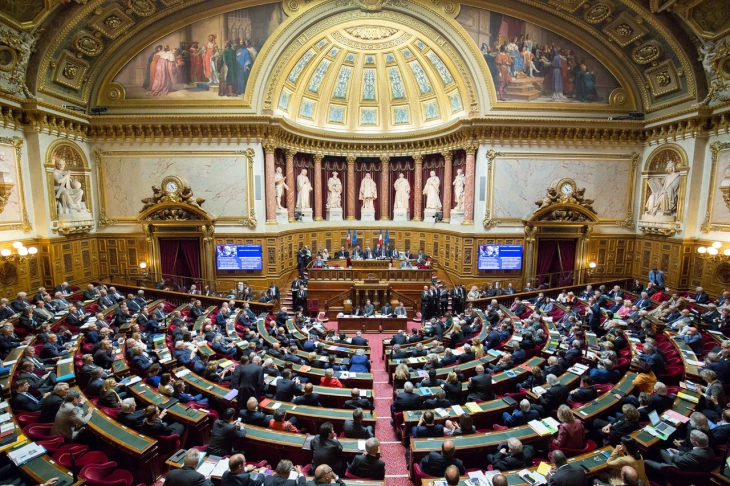French Senate passes pension reforms bill as new protests flare up
- The French Senate approved the government's controversial pension reform in a first reading late on Saturday, as mass protests against the plans flared up again in major cities such as Paris, Nice and Toulouse.
- Post By Ivan Kolekevski
- 11:02, 12 March, 2023

Paris, 12 March 2023 (dpa/MIA) - The French Senate approved the government's controversial pension reform in a first reading late on Saturday, as mass protests against the plans flared up again in major cities such as Paris, Nice and Toulouse.
A total of 195 senators voted in favour of the reform proposed by President Emmanuel Macron's centre-right government which is planning to gradually raise the retirement age in France from 62 to 64.
Another 112 senator voted against the reform, while 37 abstained.
The Interior Ministry estimated that 368,000 people demonstrated against the plans nationwide on Saturday. The CGT union put the number at more than 1 million.
The unions have called for more demonstrations and strikes on Wednesday.
Saturday's strikes led to cancellations and disruptions to air and train services.
In addition to pushing the retirement age back to 64, Macron also wants to accelerate the increase in the period of payment required for a full pension.
His government says the unpopular measures are needed to shore up the scheme for the future.
Labour unions denounce the plan and workers at oil refineries, schools, airports, rail systems and other places have walked off their jobs in recent weeks.
The current retirement age is 62 years. In practice, however, it can begin years later because those who have not paid in long enough to be entitled to a full pension work longer.
At the age of 67 there is a pension without deductions, regardless of how long it has been paid in. The government aims to keep this rule.
Under the reforms, the monthly minimum pension would increase to around €1,200 ($1,277).
The government is currently fast-tracking the bill through parliament, which is why it was passed on to the Senate, the upper house of parliament, without a vote on the whole reform in a first reading in the lower house, the National Assembly.
Next week, a commission from both chambers of parliament is set to work out a compromise which will need to be approved by both chambers.
Macron's government doesn't have an absolute majority in the National Assembly and is banking on the conservative Républicains to back the plans.
The trade unions recently asked for a meeting with President Macron on the reform proposal.
On Saturday, trade union representatives brought up the idea of a referendum. "If he is so sure, all the president has to do is ask the people," said Philippe Martinez of the CGT union.
Surveys show that a large majority of the country opposes the reforms.







